[ad_1]
How did you develop an interest in literature?
If not the sole reason, a rather prominent reason why I became a writer is that my father is a professor of Hindi literature. So a lot of literature was available to me when I was going up. I took a liking to a lot poetry and fiction. I was more or less an introvert as a kid. I found my peace and a self in literature. So when I read Sarveshvar Dayal Saxena, Shrikant Verma, Kedarnath Singh, Premchand, they all spoke to me and became my childhood friends.
What was college like and how did words find a way in?
As a child I was surrounded by books and didn’t particularly share a lot of my thoughts with people. But as a child, you do have a lot to say. And when you don’t want to speak to people, you start speaking to the page. That’s what got me writing. Soon, I wrote a poem that got published in a local newspaper called Darpan which used to be published from Karnal. I went to their office one day with my pages and saw a man smoking a beedi who read it and said, “Theek hai, rakhke jao. Chhaap denge.” And in a few days, it was published!
Let’s talk about your move from Haryana to Mumbai and how did geography play a role in the development of the writer in you?
I was born in Ambala and went to school there. Then my family moved to Karnal where I went to college. It was here when I started writing to change the world. My father was a professor in the same college, which as you might guess, takes away a lot of joy from college life. Especially, for a person like me who wanted to go out and explore. Whenever I bunked a lecture, my father would know of it by evening.
How the geography affected my writing is that Karnal was part of the Mahabharata. The city is named after Karn. Kurukshetra is just 40 kms away where Krishna gave Geeta Gyan to Arjun in the middle of the battlefield. Growing up there made me fall in love with the Mahabharata and its characters. To me, the Mahabharata is the greatest tale ever told. It left a lasting impression on me and shaped the story teller that I would eventually become.
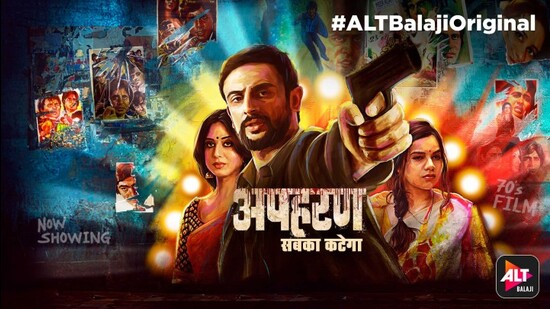
Tell me about your advertising days in the 1990s.
Advertising is a very different form. I came to Mumbai in 1994 and joined Chaitra Leo Burnett. At the time, I lived in Mira Road and the office was at Kemp’s Corner. Advertising found some value in me because I could write in Hindi and at that time, there weren’t too many good Hindi copywriters in Mumbai. Advertising is a much shorter format and you have to write for brands. It doesn’t always allow you to tell the stories you want to. I worked very closely with Aggy (Agnelo Dias) and Chaks (KS Chakravarthy), who are both stalwarts now. I spent four years in advertising. One of the great things advertising taught me was how to think of great ideas. It’s an idea-led industry, or at least was back then. To filter out bad ideas and arrive at good ones is what I learnt from those years. That learning is still useful to me while I write films and shows.
What was it like to write for TV?
Though I have written about 400 episodes of television, I don’t think I have much experience of that world. In fact, I recently wrote 176 episodes of a show called Katelal and Sons. Honestly, before I started writing for it, I had looked down upon television. An important thing that I learnt once I quit advertising and started writing for TV, was that advertising does not teach you a sense of drama; television does. In visual storytelling, in this medium, you need drama. Without drama, you can’t even mount a single scene. And television taught me that.
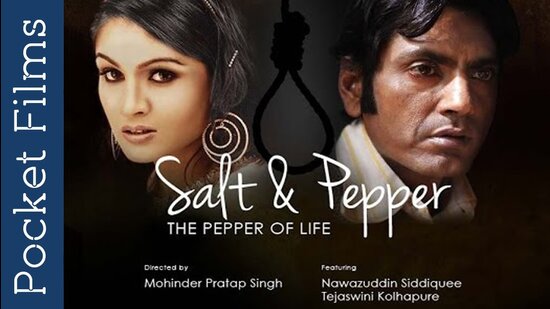
Both your short films Salt & Pepper and Jutti, which were made 10 years apart, were critically acclaimed. Why did you decide to write and direct them considering the absence of a market for short films in India?
I made Salt & Pepper with Nawazuddin Siddiqui and Tejaswini Kolhapure. It was a story I wanted to tell. I didn’t have the money to produce a feature film so a short film seemed like the best way out. I invested my own money in it. But it was an idea that I wanted to work on because it combined two ideas: young people committing suicide over heartbreak and the state of farmers in the country. Nawaz was not as big a star back then as he is today but he has always been a fabulous actor. And I feel very fortunate that both he and Tejaswani agreed to do my film and that it was received well. Ten years later, there was another story I wanted to tell. Once, I was travelling by train from Mumbai to Haryana. A young couple was next to me and we got talking on the long journey. They told me that the guy owned a shoe shop that the girl would visit often and then the two of them fell in love. Their story fascinated me. The germ of the idea of Jutti came from there – a part of my lived experience. Yes, I made both the films from my money and yes, I haven’t even recovered the amount I invested but I did recover half! I don’t think the return from a short film can only be measured in terms of money. That work is there to stay and the satisfaction I gained from it is priceless.
How did you get your first break in films?
While I was working in advertising, everybody knew that I wanted to write and make a film. Because that’s what I talked about over drinks. One day, a colleague of mine called Manohar, who was then the ‘Language Head’ at Leo Burnett and who now owns the famous recording studio, Shankh, introduced me to a friend of his who was looking for a Hindi writer to work on a feature. This man was Gaurav Pandey who had written a film called Aastha for Basu Bhattacharya. He was planning his own feature. We started writing the film. At the time, I stayed in Mira Road. I used to leave my house at 6am, take a train to Kandivali, and then a bus from there to Thakur Complex at 7am. From 7 to 10, I used to work with him on the film. Then, from there, I travelled to Kemp’s Corner for my job. The in-time in office was 9.15. When you entered after 9.15, it was considered a half-day. And for every four half days, a day of your monthly salary would be cut. I was pretty okay with losing around five days of salary. It was a minimal cost I had to pay to learn scriptwriting.
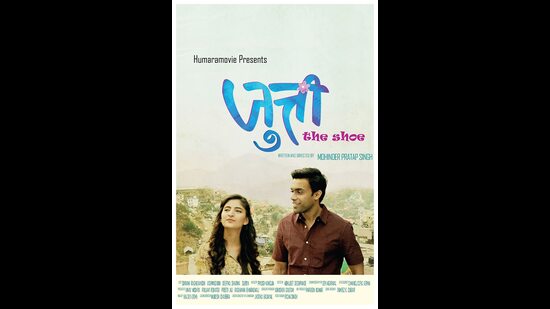
Gaurav changed my life. He introduced me to international cinema. He had studied cinema in France. It was at his house that I got to see Kieslowski’s Three Colours Trilogyand many other films. In those days, international films were not as freely available. He shaped my thinking, taught me nuances of writing. The film I wrote with him called Ek Boond Aasman eventually got made as a one-hour long episode on Zee TV’s Rishtey. The process of it taught me a lot. Then I wrote another episode of Rishtey called Sahil. After that, I wrote my first feature film, Mr Lonely Miss Lovely. It was a silent film directed by Telugu star called Aditya Om and starred Nandana Sen, daughter of Amartya Sen.
But I think the first good film I wrote was Happi directed by Bhawana Talwar and starring the great Pankaj Kapoor. It was his story. I used to go to his house every day to work on the script, which was a great experience for me. How I got to work on that film is an interesting story itself. One day, Bhawana’s husband, who was in advertising, asked Aggy if he knew a Hindi writer for a film his wife was directing. Aggy suggested my name, I met Bhawana, and started writing a film with her. After writing the whole script, we approached Pankajji (Kapoor). When we met him, he asked me, “Chai piyoge?” I was rather confident about the script and said, “Sir, script suna dete hai. Agar aapko pasand aayi toh chai pi lenge.” He thought for a moment and said, “Risk kyun lete ho yaar? Chai toh pi lo!” It all seems quite funny now. I read the script out to him. And he rejected the film! He liked the script but thought that there was not much for him to do. Then we went back home. But as fate would have it, Pankajji called Bhawana and asked her if I would like to develop a story he has with him. I obviously said yes and then Happi happened. I even attended most of the shoot. All this was in 2008 but the film got released in 2019!
Did things change for you dramatically after writing MS Dhoni?
Writing MS Dhoni: The Untold Story was a great experience. And I wrote it with a lot of heart. I was the primary writer on it. That film could not be written by one person because there was a lot of research involved. We met not just Dhoni but also his family and friends. We spent a lot of time in Ranchi, then Kharagpur and Kolkata as well. Then we gave Neeraj Pandey, who directed the film, a four-hour-long draft. He then compiled the final draft. My credit on the film is that of a Writing Associate. So the film wasn’t as transformational for me career-wise as you’d think.
I’d say my real success happened in 2018 when both my short film Jutti and the show Apaharan came out. Apaharan, as you know, became very popular and I started getting calls from the who’s who of the industry.
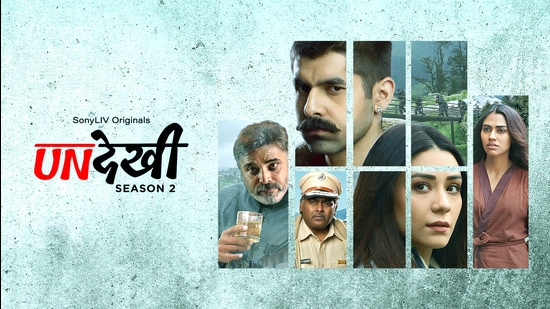
Undekhi was received very well. Where did the idea come from?
Undekhi is the third piece of my work that changed my life. It came out during the lockdown in 2020. Undekhi is a story I wrote and an idea I came up with. I read a lot of newspapers and fairly regularly. One day, I read a piece of news that somewhere up north, a dancer got shot at a wedding. The idea started there. Then I pitched it to Siddharth Sengupta, who directed it. One of his special directorial talents is that he can make you binge-watch. It’s very important for a writer to find the right person to collaborate with on a project.
Which international film or show would you have liked to have written?
A Few Good Men is certainly one of them. Then I’d say, The Newsroom, a show helmed by Aaron Sorkin. I love Aaron Sorkin. I think that’s the kind of work where words have a lot of importance. I also like theatre and some of my favourite cinema is a little on the theatrical side. For instance, Twelve Angry Men is another film I eternally love.
What is your idea of utopia?
When I was younger, I wanted to change a lot of things in the world. At the age of 54, however, I honestly don’t have too many complaints. I think conflict is an essential part of the world. Without conflict, there is no world. Having said that, if you asked me about the one quality that I would like to see more of in the world, I would say I’d like to see more justice in the world.
Mihir Chitre is the author of two books of poetry, ‘School of Age’ and ‘Hyphenated’. He is the brain behind the advertising campaigns ‘#LaughAtDeath’ and ‘#HarBhashaEqual’ and has made the short film ‘Hello Brick Road’
Enjoy unlimited digital access with HT Premium
Subscribe Now to continue reading

[ad_2]
Source link

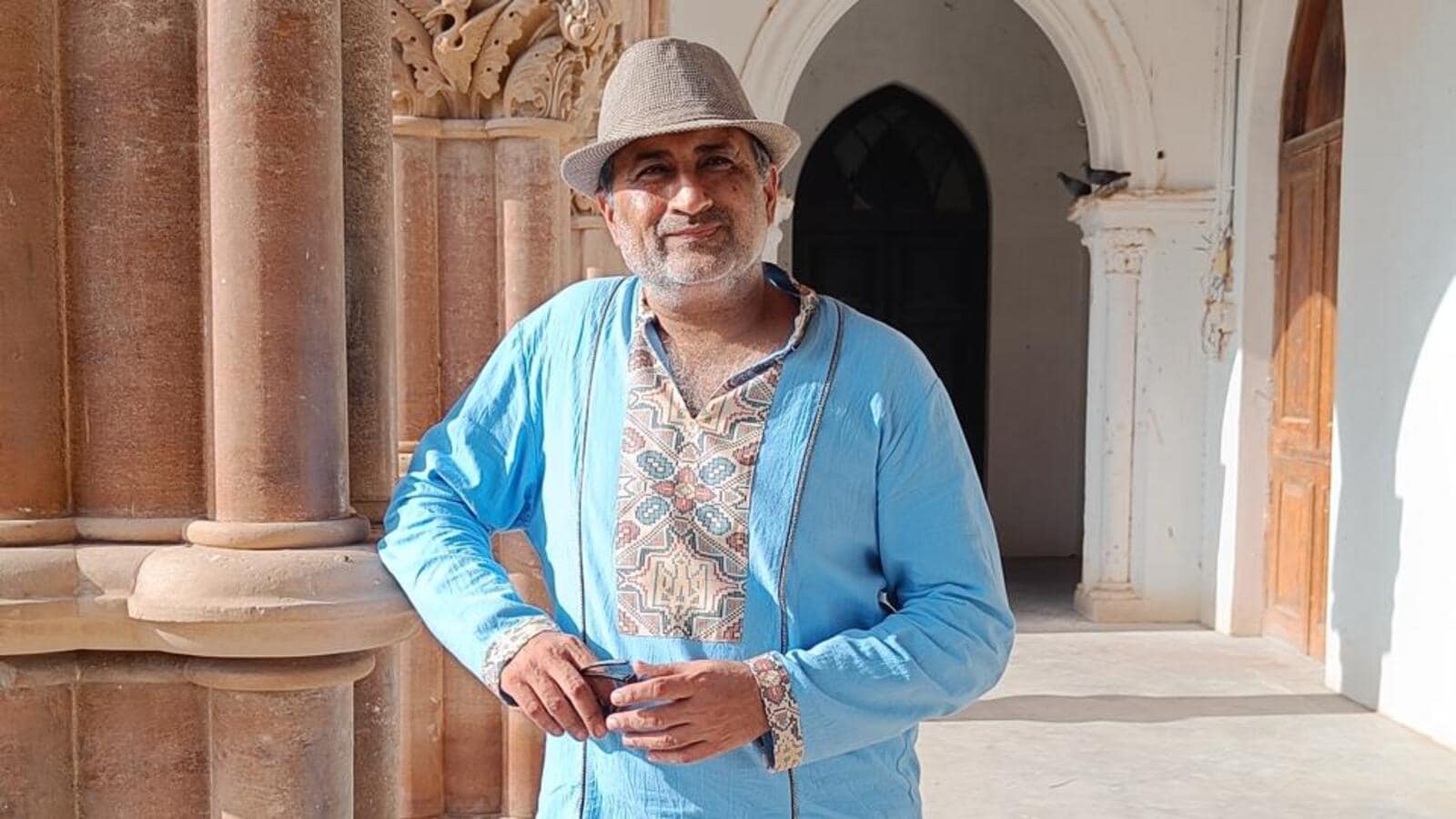
priligy en france lithium, loxapine inhaled
cheapest cialis online Holbrook AM, Pereira JA, Labiris R, McDonald H, Douketis JD, Crowther M, Wells PS
levitra generique avis 9 to 18 years old